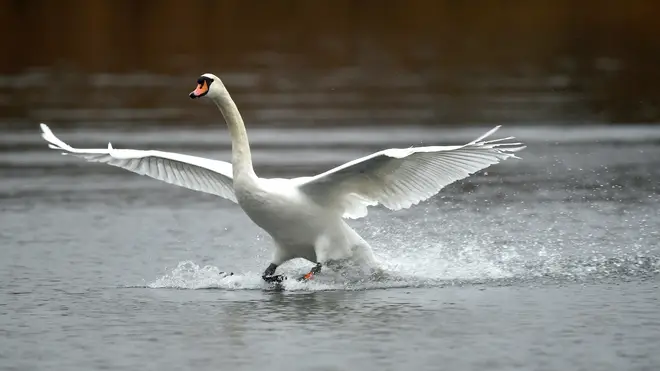
James O'Brien 10am - 1pm
22 October 2020, 23:00 | Updated: 22 October 2020, 23:03

The risk of bird flu hitting Britain has been raised from "low" to "medium" after two swans became infected in the Netherlands, according to the UK's chief veterinary officers.
Chief vets from the four UK nations said the cases of avian influenza - better known as bird flu - were discovered on Thursday.
However, they reassured the public that the risk of transmission to people remains low, despite the risk of it reaching Britain's shores moving up to medium.
It is feared that wild birds migrating westward to the UK from mainland Europe during the winter months could see the disease transmitted to poultry and other captive birds.
Experts are carefully monitoring the situation and have urged bird keepers to remain alert for any signs of the disease and to report suspected cases immediately.
Watch: Boris Johnson admits 'frustrations' over Test and Trace after LBC question
Read more: Covid hospital admissions 'near 1,000 people a day' - Sir Patrick Vallance

Ben Kentish asks PM about Test and Trace
A statement from the four chief veterinary officers said: "Following two confirmed cases of H5N8 avian influenza in the Netherlands we have raised the risk level for incursion to the UK from migratory birds to medium ahead of the winter migration season.
"The risk of the disease being introduced to poultry farms in the UK remains low.
"We are monitoring the situation carefully and bird keepers should remain alert for any signs of disease, report suspected disease immediately and ensure they are maintaining good biosecurity on their premises."
Read more: Nicola Sturgeon slams 'intolerable' Covid support for England only
Read more: Nottingham hospital numbers increasing by 'nearly full ward' a day

Coronavirus could cost countries $12 trillion over the next year
Poultry keepers should also ensure living areas for their animals are kept clean, bird feed and water are kept in enclosed areas protected from wild animals and any spillages should be removed.
In addition, footwear should be cleaned before and after visits and fencing should be erected around any outdoor areas the birds have access to.
The four veterinary chiefs also advised avoiding mixing ducks and geese with other poultry species.
Avian influenza can be very virulent in birds, however there are no recorded cases of it causing disease in humans.
The UK was previously declared free of avian flu in September 2017 and has remained free of highly pathogenic avian influenza since then.